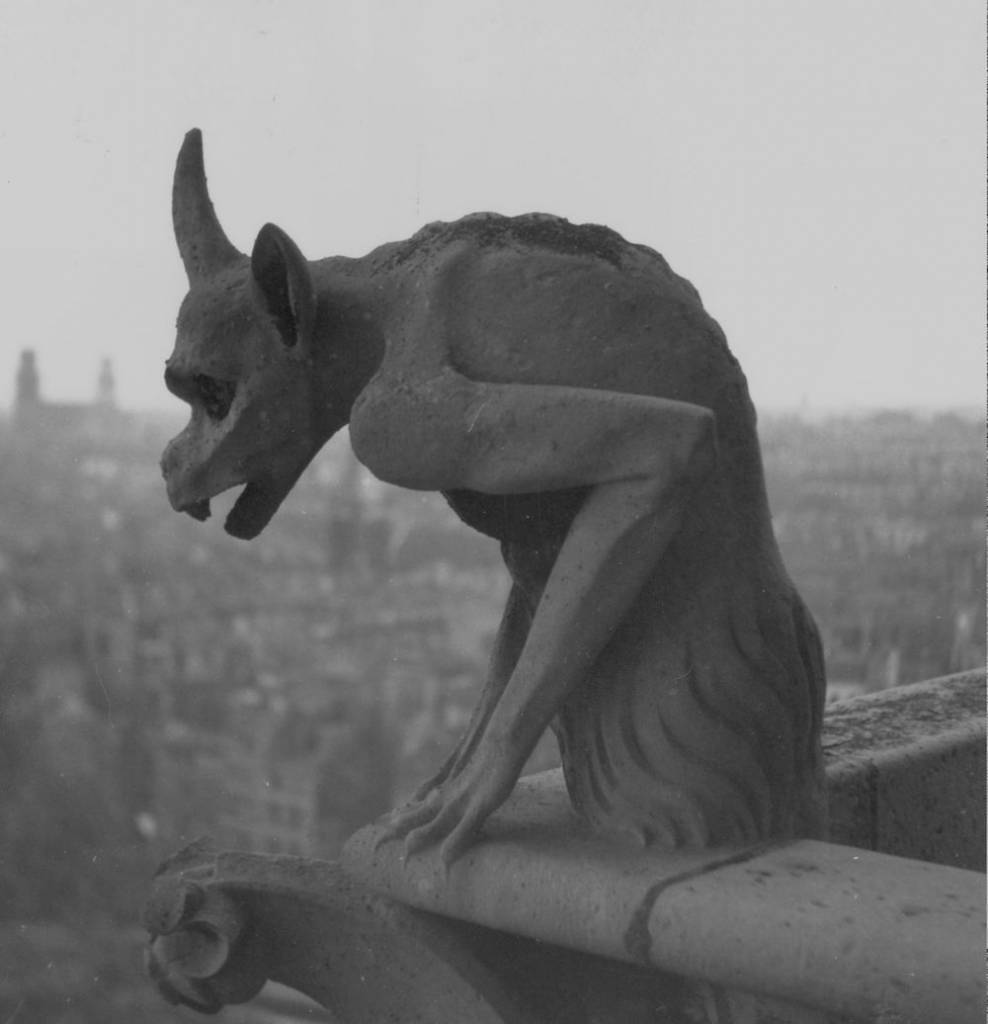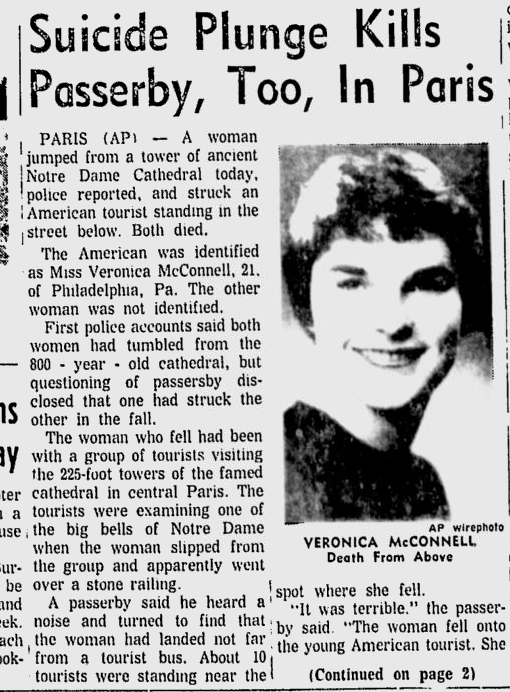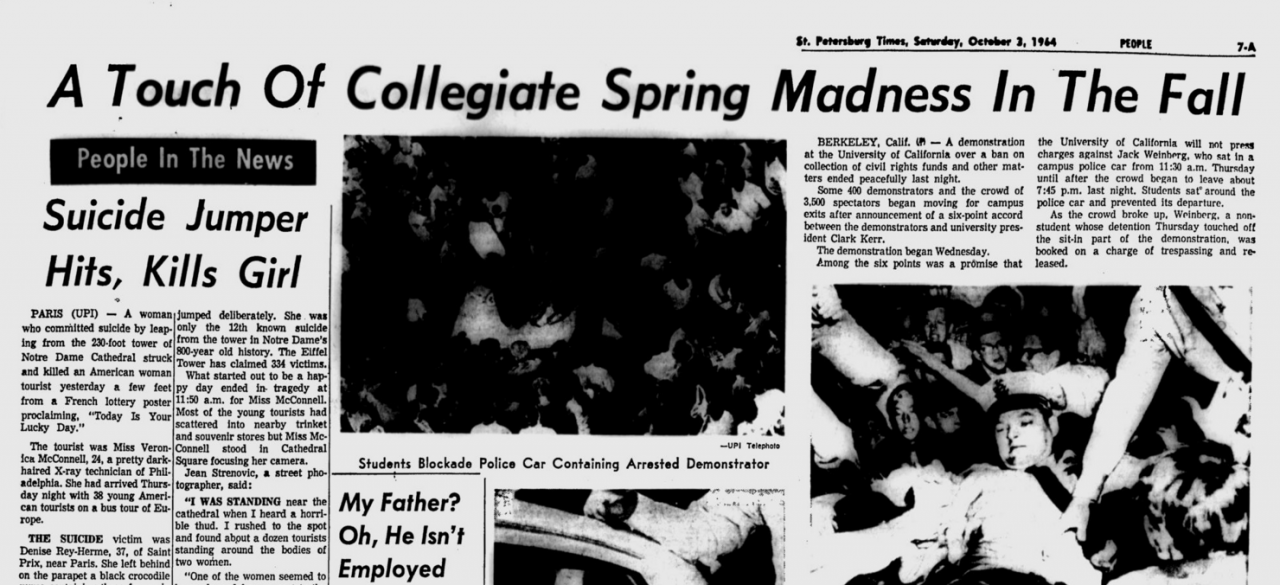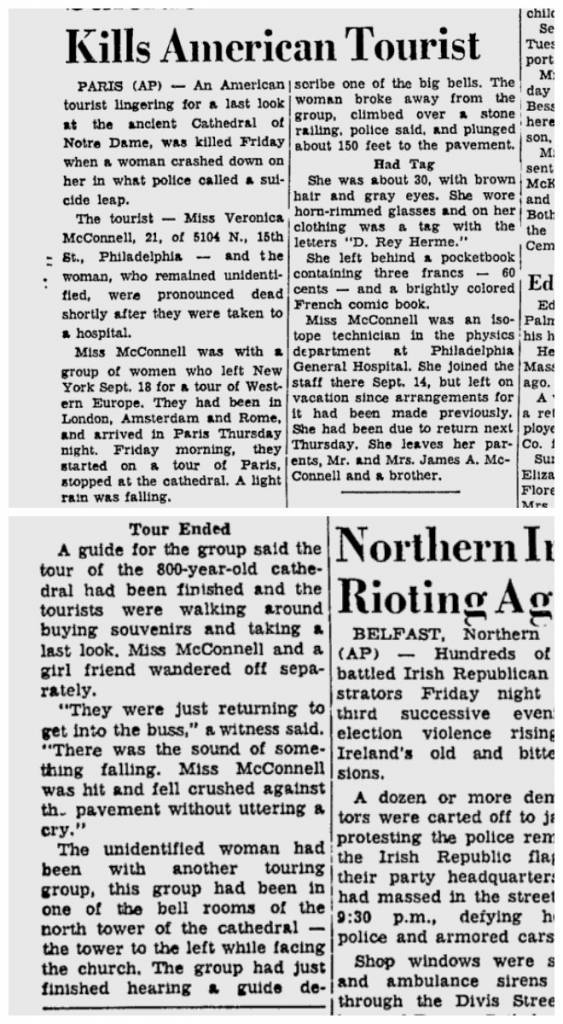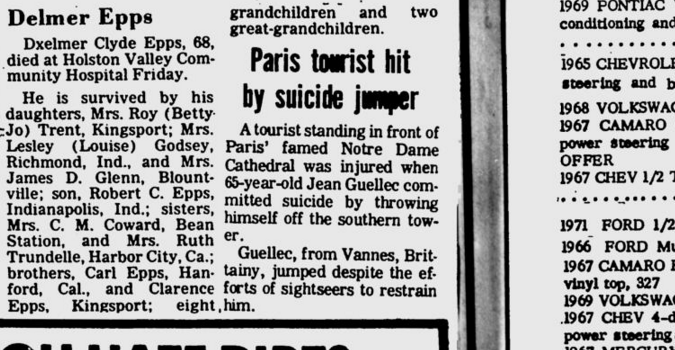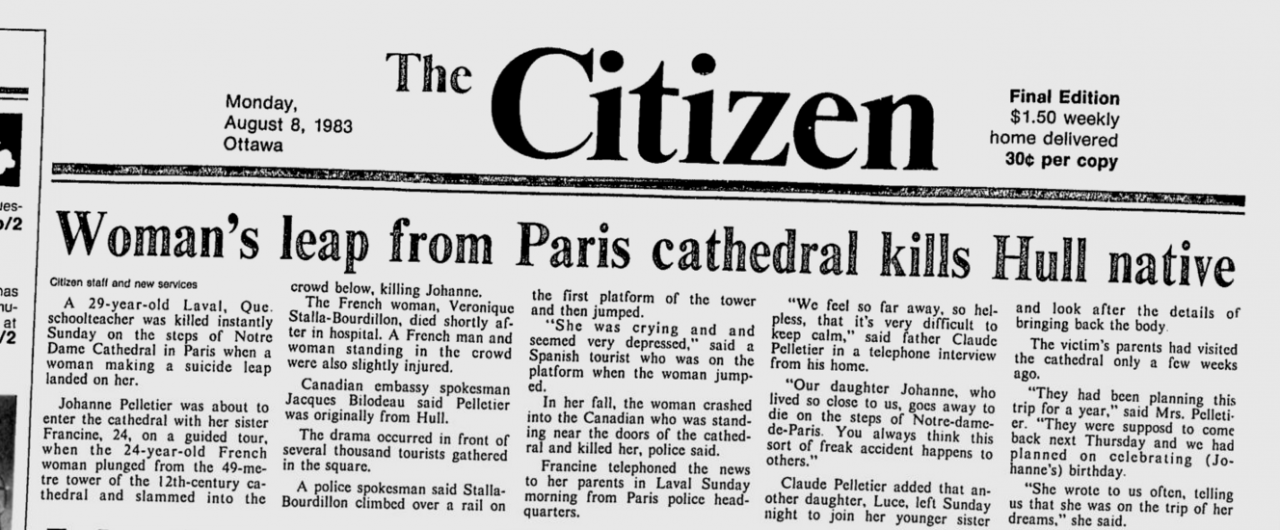“Die, so be it, but don’t make others die… suicide is restricted… as it touches those next to you the name of suicide is murder” – Victor Hugo, Les Misérables.
In 1964, 1983 and 1989 people stood by Notre Dame Cathedral, Paris, were killed when someone fell on them from a great height. The fallers were suicides; the fallen upon were tourists.
These deaths are unusual and disturbing. The suicide is the victim of all-consuming, voracious depression. The person who commits self-inflicted death is in thrall of a diabolical condition. They are a victim of cruelty of the worst sort. Their struggle demands empathy, awareness and compassion. But did any of you read of suicides who inadvertently killed another and not think the jumpers selfish?
The suicide leaves behind scars. Take another life and those wounds are deep. Take the life of someone who happened along at the wrong moment and we have a vivid example of how suicide can maim the living.
In A History of Suicide and the Philosophies Against It
Hecht wants us to think. Before anyone kills themselves, she wants them to wonder about the others they might take with them:
As I examine the history of how, in the West, we have understood self-killing, I also will put forward what might seem to be a contrarian position, a nonreligious argument against suicide. It is a philosophical argument but parts of it can or even must be told in terms of history, and parts must be demonstrated through modern statistics. One of the arguments I hope to bring to light is that suicidal influence is strong enough that a suicide might also be considered a homicide. Whether you call it contagion, suicidal clusters, or sociocultural modeling, our social sciences demonstrate that suicide causes more suicide, both among those who knew the person and among the strangers who somehow identified with the victim. If suicide has a pernicious influence on others, then staying alive has the opposite influence: it helps keep people alive. By staying alive, we are contributing something precious to the world…
She addresses the suicidal:
…first, you have a responsibility not to kill yourself; and second, the rest of us – and you yourself – owe you our thanks and respect. We are indebted to one another and the debt is a kind of faith – a beautiful, difficult, strange faith. We believe each other into being.
Psychologist Oliver James takes a different tack:
When someone is suicidal, just ordering them to be stoical, or providing hundreds of pages of logical arguments, is not enough. A good antidote to suicide is David Bowie’s song “Rock‘n’Roll Suicide”. In it, Bowie (a persona itself adopted by David Jones, his real name) separates from the character of Ziggy Stardust and tells him that he is not alone, that he is watching him. He ends by telling his alter ego to give him his hand, that he is wonderful. In the process of self-soothing, Bowie reached out to us all. The suicidal need to feel loved, not hectored or given highbrow rationales for living.
And so to the peculiar stories of the suicides and the tourists who met by accident in Paris.
The Tuscaloosa News reported this story on Oct 2, 1964.
One day on and the accident had become a suicide. The St. Petersburg Times published this story in its Oct 3, 1964 edition.
The story contained a ghoulish aside:
“A woman who committed suicide by leaping form the 230-foot tower of Notre Dame Cathedral struck and killed an American woman tourists yesterday a few feet from a French lottery poster proclaiming. ‘This is Your Lucky Day.”
The Daytona Beach Morning Journal had more:
In 1973 one man had a lucky escape, as Daily News reported on Oct 15, 1973.
The Ottawa Citizen reported another death at Notre Dame on Aug 8, 1983:
The Montreal Gazette followed up on Aug 9, 1983.
And then in 1989 it happened again. The Weekly World News reporting on the tragedy in its own insensitive style on 22 Aug 1989:
We’ll end with the words of writer John Milton, who in his 40s confronted mortality in On His Blindness:
When I consider how my light is spent,
Ere half my days in this dark world and wide,
And that one Talent which is death to hide,
Lodged with me useless, though my Soul more bent
To serve therewith my Maker, and present
My true account, lest he returning chide,
“Doth God exact day-labour, light denied?”
I fondly ask. But Patience, to prevent
That murmur, soon replies, “God doth not need
Either man’s work or his own gifts. Who best
Bear his mild yoke, they serve him best. His State
Is kingly: thousands at his bidding speed
And post o’er land and ocean without rest;
They also serve who only stand and wait.
Would you like to support Flashbak?
Please consider making a donation to our site. We don't want to rely on ads to bring you the best of visual culture. You can also support us by signing up to our Mailing List. And you can also follow us on Facebook, Instagram and Twitter. For great art and culture delivered to your door, visit our shop.
